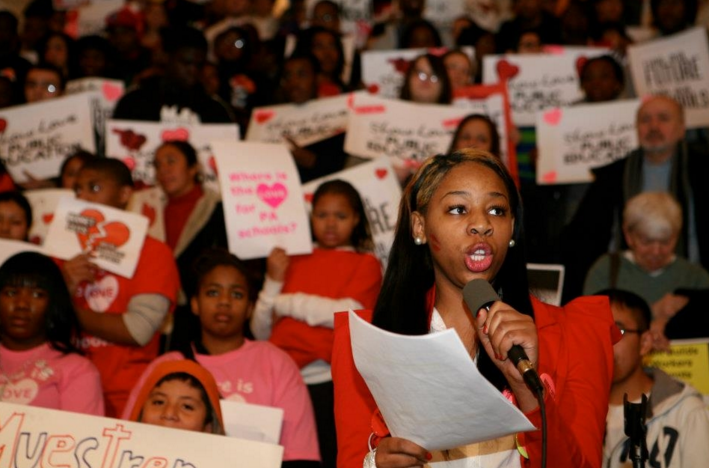Peer-Reviewed Journals
Synthesis:
The focus of this synthesis is to show how teachers and students overcome the voices and the strategies of the status quo amidst philanthropists, foundations, and government who propagate subversive pedagogy and limit student ownership. The two articles I will discuss are “Very Powerful Voices”: The Influence of youth Organizing on Education Policy in Philadelphia by Jerusha Conner, Karen Zaino and Emily Scarola and Hashtag Activism and Why #BlackLivesMatter In (and To) the classroom by Prudence Cumberbatch and Nicole Trujillo-Pagán.
In the first Article “Powerful Voices” in Philly, the authors document the progress of the Philadelphia Student Union (PSU) which is one of the most active and politically entrenched student unions in the country. PSU serves as an example of the power of social and political change when students lead the marches. The students overcome the barriers of “adults’ low expectations and paternalistic views” and adults are forced to learn and to engage with them as equals(Conner, Zaino, Scarola, 2012). Students have transformed the school environment and the school system to make it more fair and equitable. PSU students designed and implemented professional development workshops for teachers, developed youth training regarding policing, and worked to have a new school building for West Philly (Conner, Zaino, Scarola, 2012). They go to school board meetings, meet with superintendents, and remain determined to better their oppotyunities. When Edison schools tried to take over, “they formed a human chain” around district offices and would “ block entrances (Conner, Zaino, Scarola, 2012.” Internally and externally, their work has pushed the district to do better for all children.
In the second article “Hashtag Activism,” the authors talk about the ways Radical Teachers are making their classrooms epicenters for social justice reform using Twitter as a democratizing platform. As tragedies strike Black communities, especially, the author suggest that teachers not shy away from the power and accessibility of these conversations. Because students who are people of color can never truly disassociate with Trayvon Martin or Philando Castile, teachers should draw on “the power of the story” to discuss the affects of the “racial consciousness” that shapes what it means to be a “person of African descent in America (Cumberbatch & Pagan, 2016).” Using social media and using complex curricula that challenges “mainstream media portrayals of a “ ‘post-racial’” America (Cumberbatch & Pagan, 2016) teachers may begin to challenge the status quo as an activist.
According to these two articles, power rests in the power of those who are daring to change the status quo. The oppression that students face in the classroom and the stifling that teachers face are products of crippling complacency created by boards of education that pander to certain interests and generational lack of support for the poor and people of color. These article show students demanding equality and teachers who take the accessible tools and allow students to resist on a social media platform.
